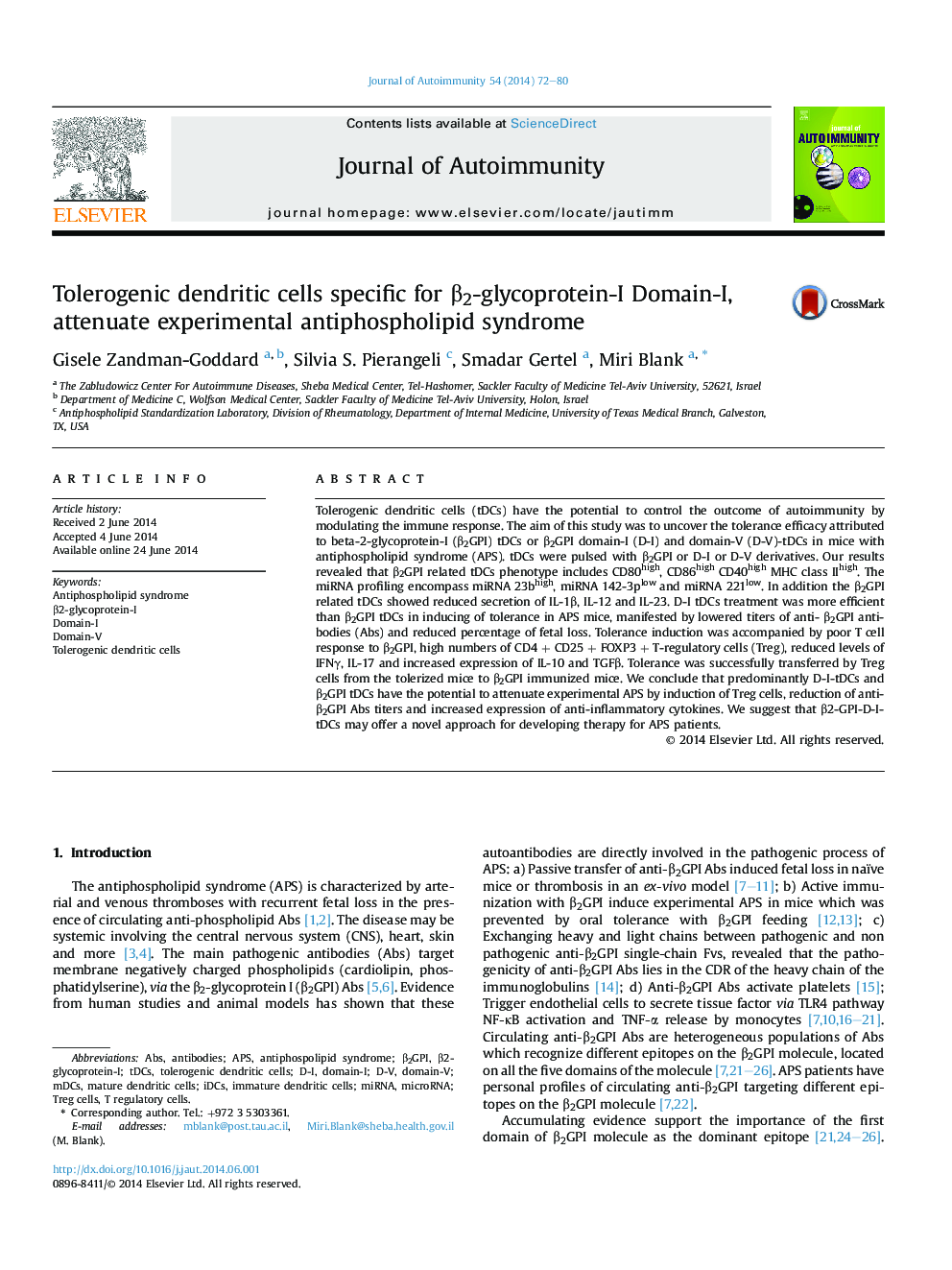| Article ID | Journal | Published Year | Pages | File Type |
|---|---|---|---|---|
| 3367785 | Journal of Autoimmunity | 2014 | 9 Pages |
•β2GPI domain-I tolerogenic dendritic cells (D-I tDCs) significantly decreased APS manifestations in APS.•D-I-tDCs enhanced functional T regulatory expression in APS mice, increase antiinflammatory cytokines expression.•D-I-tDCs reduce proinflammatory cytokines levels.•βreduce p tDCs may have a therapeutic potential for APS fetal loss.
Tolerogenic dendritic cells (tDCs) have the potential to control the outcome of autoimmunity by modulating the immune response. The aim of this study was to uncover the tolerance efficacy attributed to beta-2-glycoprotein-I (β2GPI) tDCs or β2GPI domain-I (D-I) and domain-V (D-V)-tDCs in mice with antiphospholipid syndrome (APS). tDCs were pulsed with β2GPI or D-I or D-V derivatives. Our results revealed that β2GPI related tDCs phenotype includes CD80high, CD86high CD40high MHC class IIhigh. The miRNA profiling encompass miRNA 23bhigh, miRNA 142-3plow and miRNA 221low. In addition the β2GPI related tDCs showed reduced secretion of IL-1β, IL-12 and IL-23. D-I tDCs treatment was more efficient than β2GPI tDCs in inducing of tolerance in APS mice, manifested by lowered titers of anti- β2GPI antibodies (Abs) and reduced percentage of fetal loss. Tolerance induction was accompanied by poor T cell response to β2GPI, high numbers of CD4 + CD25 + FOXP3 + T-regulatory cells (Treg), reduced levels of IFNγ, IL-17 and increased expression of IL-10 and TGFβ. Tolerance was successfully transferred by Treg cells from the tolerized mice to β2GPI immunized mice. We conclude that predominantly D-I-tDCs and β2GPI tDCs have the potential to attenuate experimental APS by induction of Treg cells, reduction of anti- β2GPI Abs titers and increased expression of anti-inflammatory cytokines. We suggest that β2-GPI-D-I-tDCs may offer a novel approach for developing therapy for APS patients.
